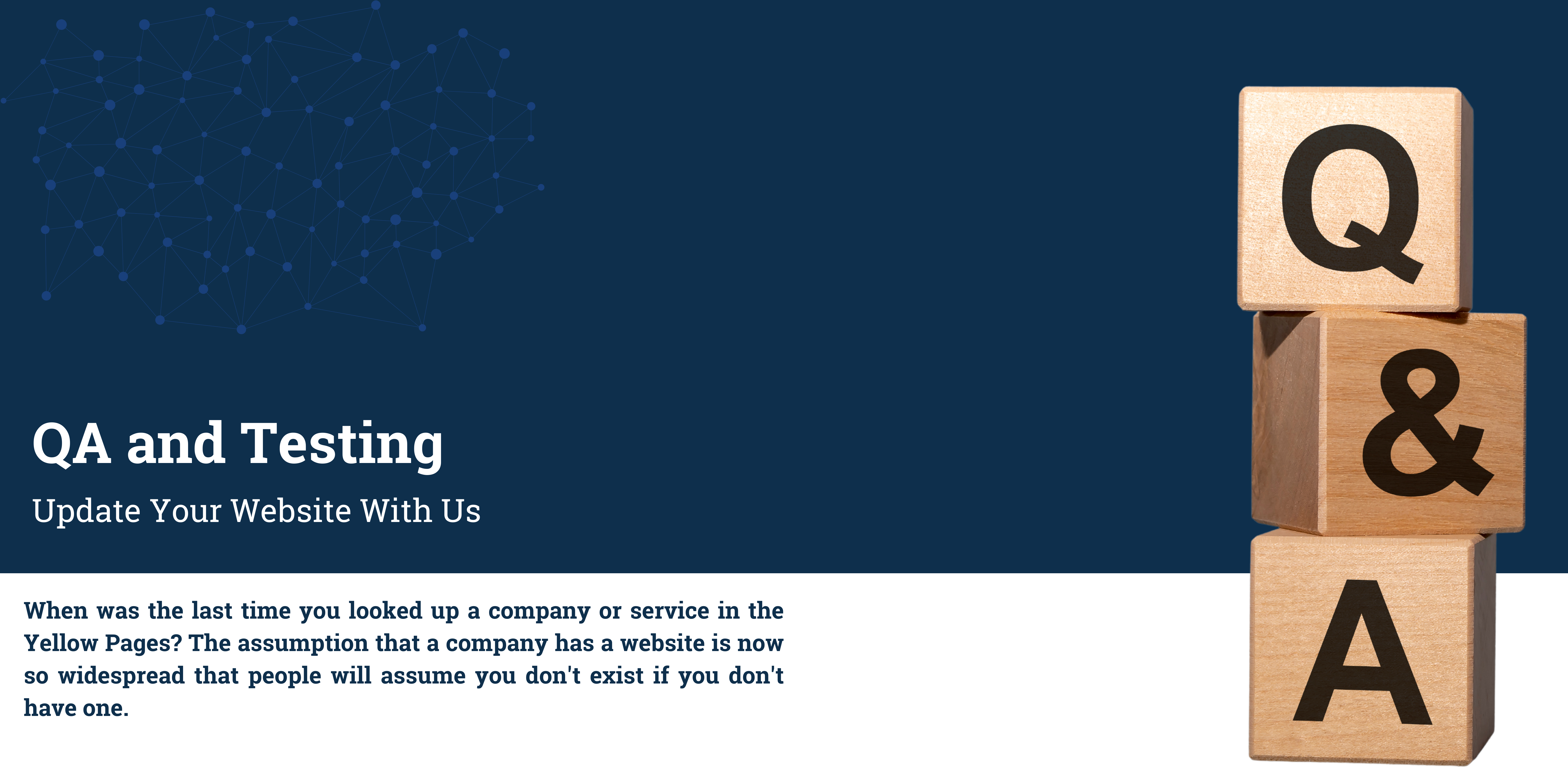
Website Testing
When was the last time you looked up a company or service in the Yellow Pages? The assumption that a company has a website is now so widespread that people will assume you don't exist if you don't have one. Every business, brand, institution, and organization now have a website from the smallest start-up to the biggest names in the sector. And this holds everywhere!
Nearly 2 billion websites exist now. Most websites focus on a subject or objective, such as news and information, education, business, entertainment, or social networking. These websites provide information to potential customers about goods and services, serve as brand ambassadors for businesses, make buying and distributing things more accessible, and provide visual content in addition to text. Users can also view websites on various gadgets like PCs, laptops, tablets, and smartphones.
What Role Do Websites Play?
- More than 90% of people begin their online searches for goods, services, and information.
- If a company doesn't have a website, 30% of customers won't consider it.
- 75% of consumers rely their assessments of a company's legitimacy on how easy it is to use and navigate the website.
The performance and content of a company's website affect commercial transactions across many industries, including not just B2C but also B2B, industrial, and manufacturing. Today, websites are a vital part of business strategy for most firms and are thought to drive ROI. Therefore, ensuring your online presence, eCommerce software, web application services, and mobile products are reliable, secure, and well-organized is more crucial than ever.
What Defines a Quality Website?
In the age of NOW, when consumers expect instantaneous information instantaneously, your company's website needs to be practical, functional, and user-friendly and offer valuable and accurate information. It must be well-polished, which entails being free of spelling and grammar errors, functioning correctly across all browsers, and being simple to access on a mobile device. Due to the rising popularity of mobile internet access, web design must be carefully researched and optimised for mobile viewing.
With all this complexity, website testing is now more important than ever
We've divided our website testing services into the following categories to address all of these concerns while testing websites :
In the age of NOW, when consumers expect instantaneous information instantaneously, your company's website needs to be practical, functional, and user-friendly and offer valuable and accurate information. It must be well-polished, which entails being free of spelling and grammar errors, functioning correctly across all browsers, and being simple to access on a mobile device. Due to the rising popularity of mobile internet access, web design must be carefully researched and optimised for mobile viewing.

API testing
It is likely the most crucial because a malfunctioning or partially working API can cause errors to appear out of nowhere. We are exposed to the opacity of the UI as software becomes more componentized. A crucial component of all test efforts is extensively testing the interface both forward and backwards, as well as across all third-party parts that it may interact with. This should be an essential element of your website testing strategy for e-commerce sites that employ third-party payment interfaces.
Functionality Testing
A functional test examines all aspects of an application's operation, from its most fundamental features such as menus, links, and forms to its more complex ones, such as database connections and the integration of external components.


Regression testing
It is typically necessary after any source code changes are made to a web application. This can be done manually or automatically. Regression testing can be entirely manual or, more frequently, a combination of human and automated testing, with automation used selectively where it makes the most sense from the perspective of how the programmed will be used. Learn more about the automated web application testing methods used by Boost using tools like Selenium Testing.
Usability testing for websites
Heuristic inspection-based testing that assesses usability concerns like flow, efficiency, mistakes, success rate, content checking, and elements of user help features. Examines browser, operating system, mobile device, and printing choices compatibility through compatibility testing. Understanding what can bring you to 80/20 with the least effort, time, and money while assuring your coverage is essential, given the proliferation of device possibilities.


Performance testing
If users are dissatisfied with the speed of a page's load, they can enter in another URL. Web application stress testing and load testing with benchmarking and performance evaluation of the application under different environment characterizations, such as connection speeds, user loads, and user activities Web application penetration and website security testing are used to look for potential flaws that the Open Web Application Security Project has highlighted.
Copyright© 2024 InspironLabs. All rights reserved.
 +91-789-269-7903
+91-789-269-7903 +1-206-922-2057
+1-206-922-2057

